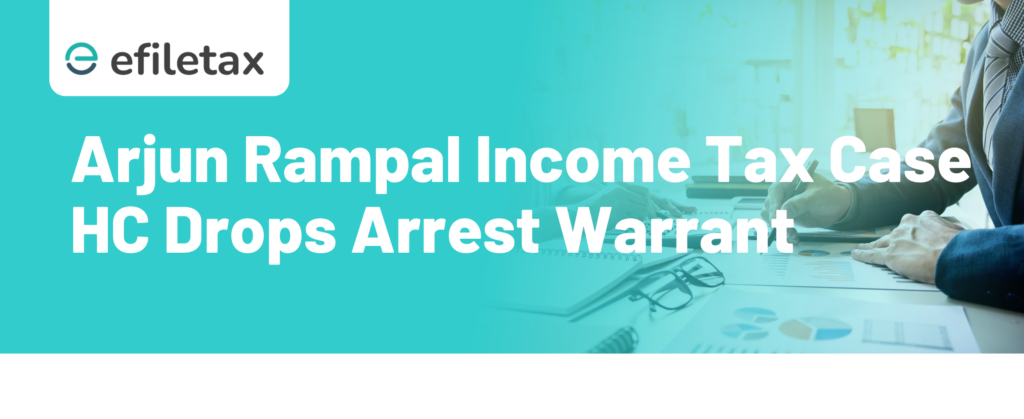
Arjun Rampal Income Tax Case Bombay HC Cancels Non-Bailable Warrant
The Bombay High Court has quashed the non-bailable warrant (NBW) issued against actor Arjun Rampal in an income tax prosecution case, citing procedural irregularities and a lack of intent to evade trial. This case offers valuable insights into the legal safeguards available to taxpayers during criminal prosecution under the Income-tax Act.
Why Was a Warrant Issued?
The Income Tax Department had initiated prosecution against Rampal under Section 276CC of the Income-tax Act, 1961 – for alleged willful failure to file return of income for Assessment Year (AY) 2013–14.
- The Magistrate’s court issued an NBW after Rampal failed to appear for hearings.
Key Legal Provision: Section 276CC
Section 276CC of the Income-tax Act deals with prosecution for failure to furnish returns of income in due time.
| Provision | Description |
|---|---|
| Section 276CC | Jail term of 3 months to 2 years (up to 7 years if tax exceeds ₹25 lakh), plus fine |
| Applicability | When returns are not filed despite income being above the exempt limit |
The case hinges on whether the delay was willful and whether the taxpayer was evasive or negligent.
What Did the Bombay High Court Say?
In its judgment, the High Court noted:
- Rampal had later appeared and cooperated with proceedings.
- The trial court did not consider if Rampal’s absence was intentional or unavoidable.
Conclusion: The High Court set aside the warrant, restoring the due process of law.
Practical Insights for Taxpayers
Expert View:
“This case reminds us that procedural fairness must be upheld, even in prosecution cases. Taxpayers have a right to be heard before coercive action is taken.”
— CA S. Rajan, Tax Advisor
Key Tips:
- Always respond to income tax notices or summons on time.
- If unable to appear, submit a reasoned written explanation.
- Legal assistance can help avoid harsh penalties and arrest.
Legal Reference
- Section 276CC – Income-tax Act
- Bombay HC Judgement Details – LiveLaw (external link)
FAQs
Q1. What is Section 276CC of the Income Tax Act?
It deals with prosecution for not filing income tax returns when required, and prescribes jail and fines based on the tax amount involved.
Q2. Can a non-bailable warrant be challenged?
Yes. If there is no evidence of willful default or if due process is not followed, the warrant can be quashed in High Court.
Q3. What should I do if I get a tax summons?
Attend the hearing or send a legal representative. If unable to attend, submit an affidavit or written explanation.
Summary
Bombay High Court quashes NBW against Arjun Rampal in IT case under Section 276CC, citing lack of willful default and procedural lapses. Learn how taxpayers can safeguard against prosecution.